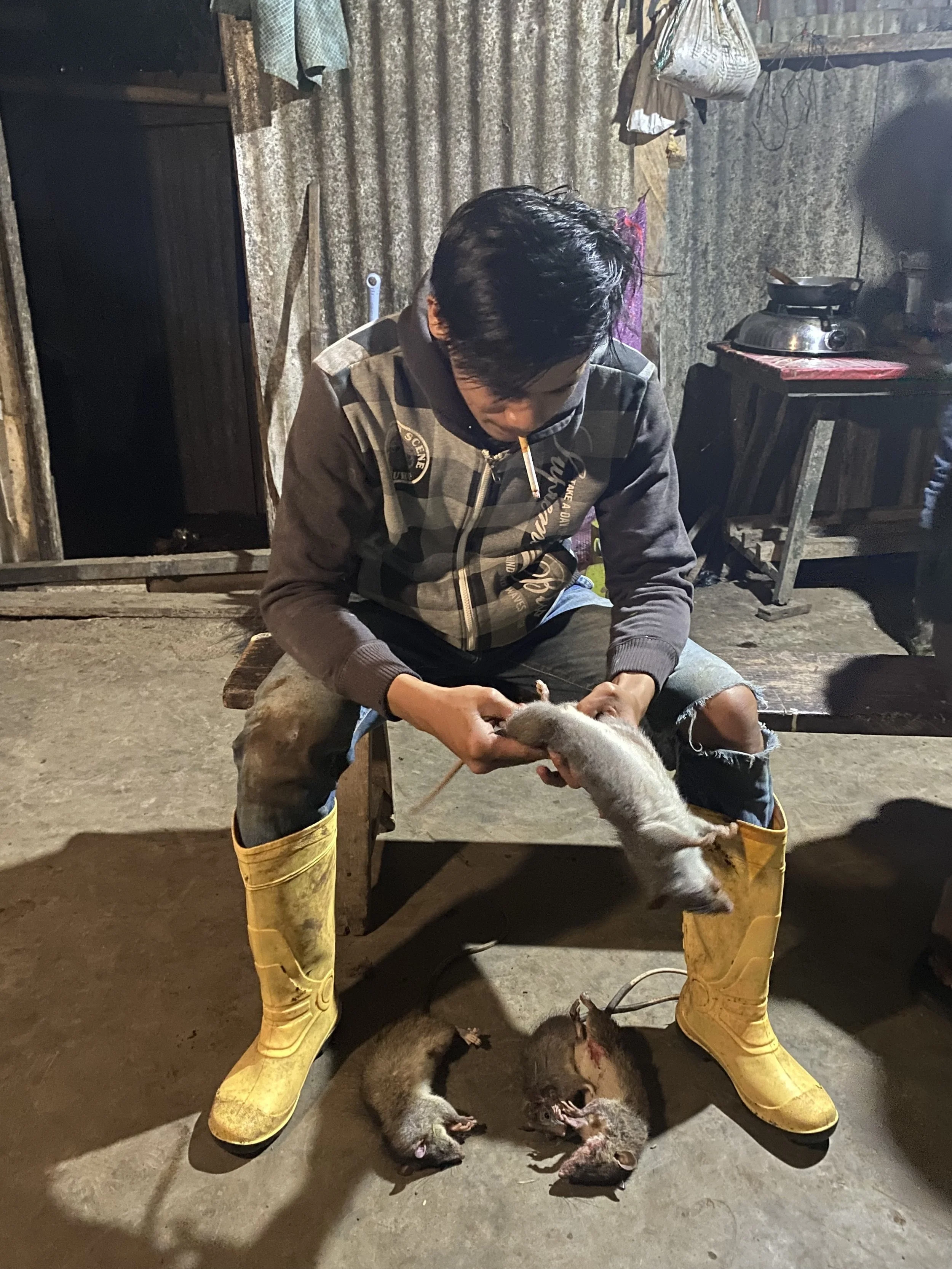Sulawesi’s love for exotic meat
With more than 17,000 islands making up the Indonesian archipelago, Sulawesi may not be as popular as Bali, Java or Sumatra, but it is home to many fringe tribes with a myriad of unusual customs. For that reason, we made it our very first destination after the COVID travel bans were lifted.
We heard about the notorious Tomohon Extreme Market where local Minahasans dined on bats and rats; the elusive aquatic Bajau tribe, some of whom spend their entire lives in sea-faring houseboats while spearfishing in the ocean for food; and the Torajans with their mystical after-death rituals that involved cohabiting with corpses in their own homes, sometimes for decades. But the only way to get to any of these places was to fly to Manado or Makassar from Singapore. We chose the former as our gateway to the island.
Whenever we travel, we try to go hyper-local, which means taking public transport, living with local families and eating in everyday places. One of our first meals in Manado was at a roadside rumah makan (eating house), where a random group of native Minahasans invited us to share a homemade salad of papaya leaves and shaved coconut. We had never tasted papaya leaves as we knew them to be bitter, but the locals told us how they used the natural sweetness of the coconut to neutralise the notes. The result was a crunchy bittersweet blend that our palates instantly took to.
Through the simple act of sharing a salad, we got to know Joshua and Mei, a local couple who were, in equal parts, curious about our world and eager to regale us with the wonders of theirs. With the world just emerging from the global pandemic, they proudly shared all about Minahasan culture - and that one night eventually led to a week of travels together and a friendship that has lasted till today.
Our first stop was the Tomohon Extreme Market, famous the world over for selling bats, rats, pythons, cats and dogs (!) – till the Indonesian government banned the sale of cat and dog meat in July 2023. The next morning, we met at a local bus station and boarded a rickety bus at 9am. At first glance, the market felt like any ordinary one until we turned a corner and saw hanging pythons, fruit bats, skewered jungle rats, wild boars and caged dogs for sale. We were initially shocked, but the vendors we met were incredibly welcoming and, before long, we scored ourselves an invite to join a family of villagers on their night-time hunt for bats and rats.
Our three-hour hunt was followed by another three-hour midnight cookout, where our host family meticulously processed its catch of bats and rats. To the best of our abilities, we helped them conjure up rempah from a medley of herbs and spices, which were used to cook our supper of exotic meats, served alongside freshly steamed rice and stir-fried water spinach.
It was an eye-opening introduction to Sulawesi, and this same generosity and hospitality shadowed us throughout our time in Sulawesi Utara.
Thanks to our friend Joshua, we learnt about an orchestra that uses instruments handcrafted entirely from bamboo. They are not run-of-the-mill bamboo flutes but tubas, saxophones and trumpets, all crafted from bamboo!
After a handful of mikrolet rides (Manado’s equivalent of Bangkok’s tuk-tuks) and cups of hot tea offered by numerous villagers who spontaneously participated in our efforts to locate members of the orchestra, we finally found the master musician Trivelino Lolong in a small village called Lemoh.
But Mr Lolong is more than a musician. He is also a self-taught craftsman who makes bamboo instruments for the local schools!
Surrounded by a curious group of village kids, we spent an afternoon marvelling at his handiwork, and eventually enjoyed a performance by Mr Lolong and his friend on their bamboo clarinet and saxophone.
